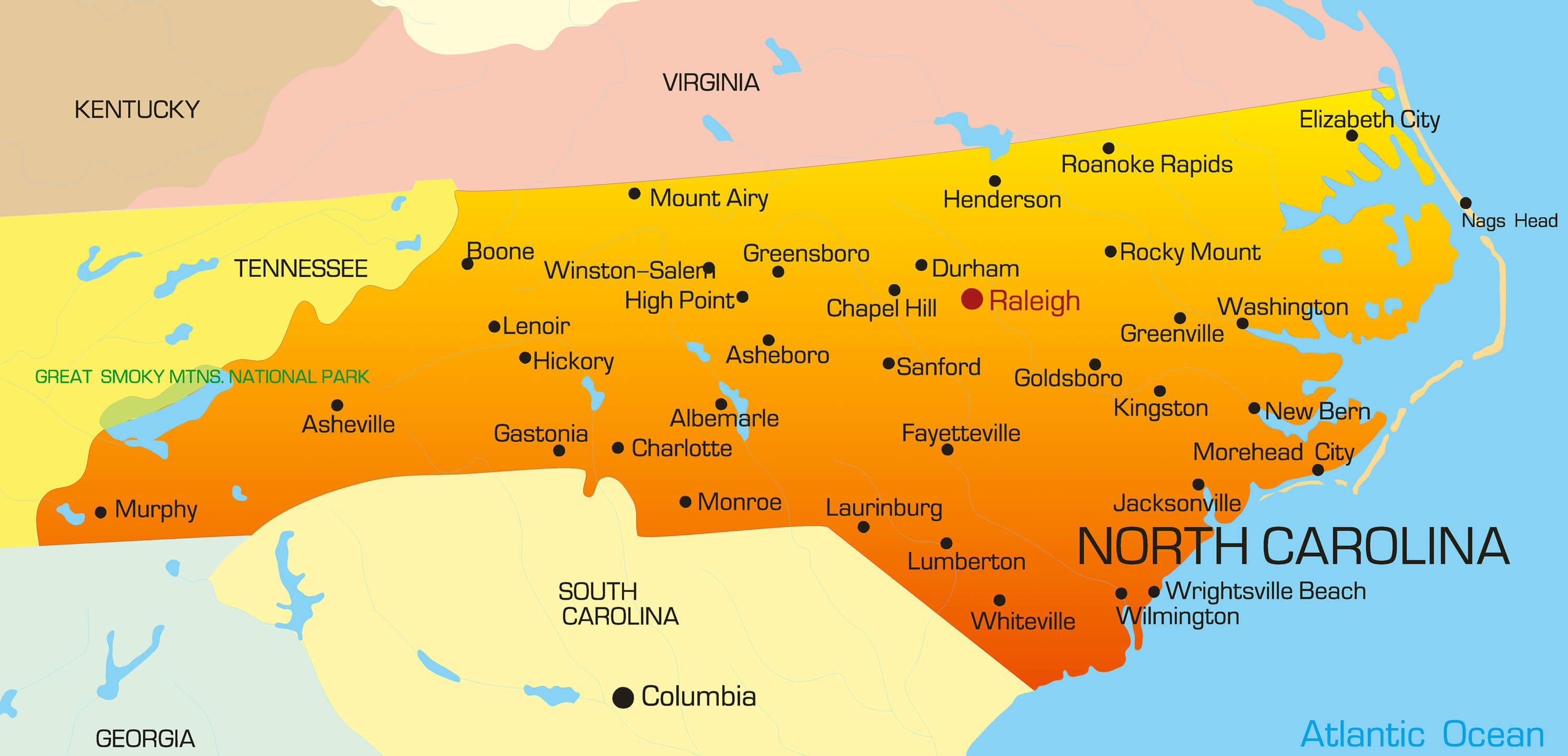Navigating Time in North Carolina: A Deep Dive into the State’s Time Zones
Associated Articles: Navigating Time in North Carolina: A Deep Dive into the State’s Time Zones
Introduction
With enthusiasm, let’s navigate via the intriguing subject associated to Navigating Time in North Carolina: A Deep Dive into the State’s Time Zones. Let’s weave attention-grabbing data and supply recent views to the readers.
Desk of Content material
Navigating Time in North Carolina: A Deep Dive into the State’s Time Zones

North Carolina, a state brimming with various landscapes and cultures, operates inside a single time zone: Japanese Normal Time (EST) through the winter months and Japanese Daylight Time (EDT) through the summer time. Nevertheless, the simplicity of this assertion belies a extra nuanced actuality, notably when contemplating the state’s geographical expanse and its proximity to neighboring states working on completely different schedules. This text will delve into the intricacies of North Carolina’s time zone adherence, exploring its historic context, sensible implications, and the occasional complexities that come up from its geographical place.
The Easy Reality: EST and EDT
North Carolina observes Japanese Normal Time (EST), which is 5 hours behind Coordinated Common Time (UTC), from the second Sunday in November till the second Sunday in March. In the course of the the rest of the 12 months, the state switches to Japanese Daylight Time (EDT), which is 4 hours behind UTC. This biannual shift, dictated by the Uniform Time Act, goals to maximise sunlight hours through the summer time months and preserve vitality. The constant utility of this time change throughout the state avoids the confusion and logistical challenges confronted by states spanning a number of time zones.
Geographical Issues: A State of One Time
Not like some bigger states, North Carolina doesn’t straddle a number of time zones. Its complete geographical space falls squarely inside the Japanese Time Zone. This geographical uniformity simplifies many elements of life inside the state, from scheduling appointments and coordinating enterprise actions to broadcasting tv applications and managing transportation schedules. The shortage of inside time zone variations eliminates the necessity for complicated time zone conversions inside the state, streamlining communication and lowering potential errors.
The Affect of Neighboring States:
Whereas North Carolina operates solely inside the Japanese Time Zone, its proximity to states observing Central Time (CT) and Atlantic Time (AT) necessitates an understanding of those neighboring time zones. The westernmost counties of North Carolina are comparatively near the border with Tennessee and Georgia, each of which observe Central Time throughout a part of the 12 months. This proximity can result in occasional confusion, notably for people touring between states or partaking in cross-border enterprise actions. Equally, the easternmost elements of the state are close to the Atlantic coast, and whereas they continue to be inside EDT, the proximity to Atlantic Time zones in different international locations can current challenges for worldwide communication and coordination.
Historic Context: The Evolution of Timekeeping in North Carolina
The adoption of normal time zones in the USA was a comparatively late growth, occurring on the finish of the nineteenth century. Earlier than the standardization, particular person communities usually operated on their very own native time, resulting in widespread confusion and logistical difficulties. The institution of time zones introduced order and effectivity to transportation, communication, and commerce. North Carolina, like different states, steadily adopted the Japanese Time Zone as a matter of practicality and consistency. The introduction of Daylight Saving Time, nevertheless, was a newer growth, carried out and modified over time to optimize daylight utilization and vitality conservation. The present system, with its biannual shifts, represents a steadiness between these targets and the potential disruptions brought on by time modifications.
Sensible Implications of Time Zone Adherence:
The constant adherence to Japanese Time in North Carolina has vital sensible implications throughout numerous sectors.
-
Enterprise: Companies in North Carolina function on a unified schedule, simplifying inter-office communication, scheduling conferences, and coordinating deliveries. The absence of inside time zone variations streamlines operations and minimizes potential errors.
-
Transportation: Transportation schedules, together with bus routes, prepare schedules, and flight instances, are simply coordinated inside the state. The constant time zone avoids the complexities related to a number of time zones and simplifies journey planning.
-
Schooling: Faculties and universities function on a uniform schedule, simplifying scholar and trainer schedules, and making certain consistency throughout academic establishments.
-
Media and Communication: Tv and radio broadcasting are synchronized throughout the state, eliminating the necessity for separate programming schedules for various time zones. Information broadcasts and different media content material are delivered seamlessly to your entire state inhabitants.
-
Healthcare: Healthcare companies function on a coordinated schedule, simplifying appointment scheduling, affected person care coordination, and emergency response instances.
Challenges and Issues:
Regardless of the general simplicity of getting a single time zone, sure challenges and issues exist:
-
Border Areas: As talked about earlier, the proximity to states observing Central Time can result in occasional confusion, particularly for people regularly crossing state traces. Consciousness of the time distinction is essential for efficient communication and coordination.
-
Worldwide Communication: North Carolina’s location on the Japanese Time Zone necessitates consciousness of worldwide time variations when speaking with companies or people in different international locations.
-
Daylight Saving Time Debates: The biannual shift to and from Daylight Saving Time stays a topic of ongoing debate, with arguments for and in opposition to its continued implementation. The potential for disruption to sleep schedules, productiveness, and general well-being are regularly cited issues.
-
Technological Changes: Software program and functions should be configured accurately to account for the time zone modifications, making certain correct knowledge and scheduling.
Conclusion:
North Carolina’s adherence to a single time zone – Japanese Time – simplifies many elements of day by day life inside the state. The geographical uniformity eliminates the complexities related to a number of time zones, streamlining communication, transportation, and enterprise operations. Nevertheless, consciousness of neighboring time zones and the biannual shift to Daylight Saving Time stays essential for efficient coordination and communication, each inside and out of doors the state. Understanding the historic context and sensible implications of time zone adherence in North Carolina gives a useful framework for navigating the complexities of timekeeping on this various and dynamic state. Whereas the simplicity of a single time zone is a major benefit, ongoing consciousness and adaptation to the nuances of timekeeping are important for seamless functioning throughout all sectors of North Carolina life.






Closure
Thus, we hope this text has offered useful insights into Navigating Time in North Carolina: A Deep Dive into the State’s Time Zones. We hope you discover this text informative and useful. See you in our subsequent article!